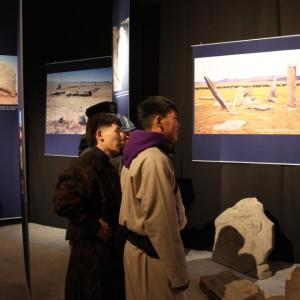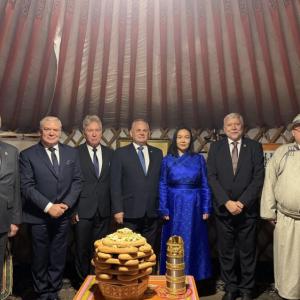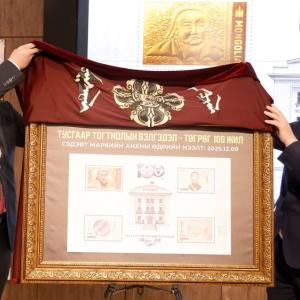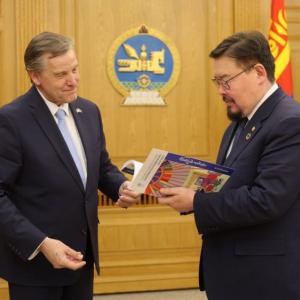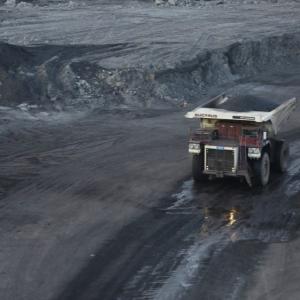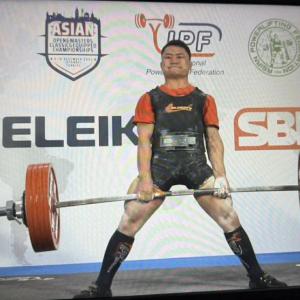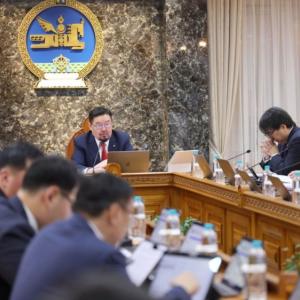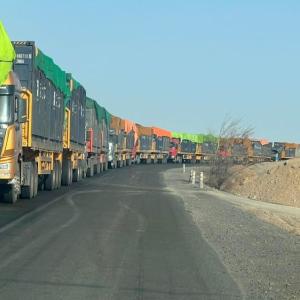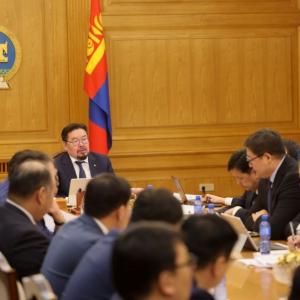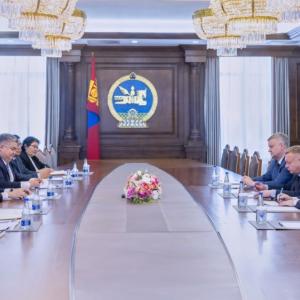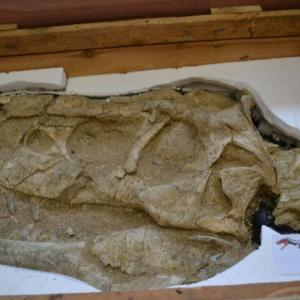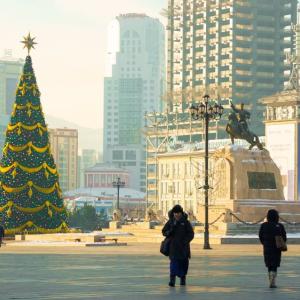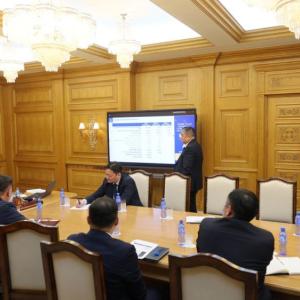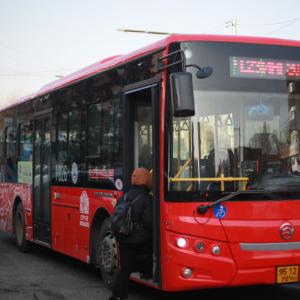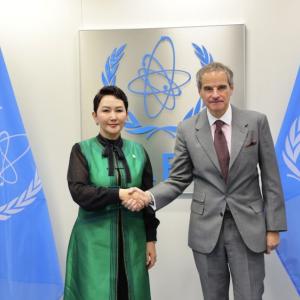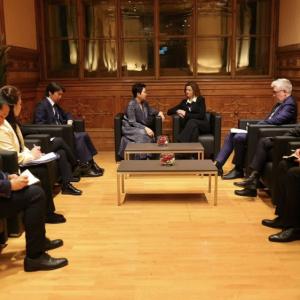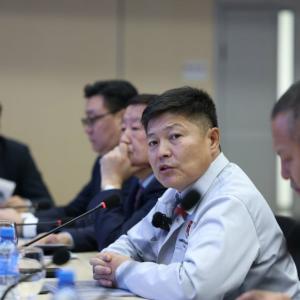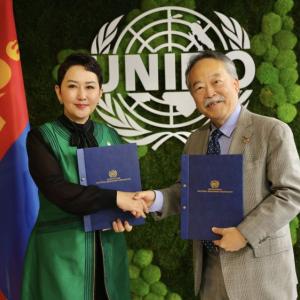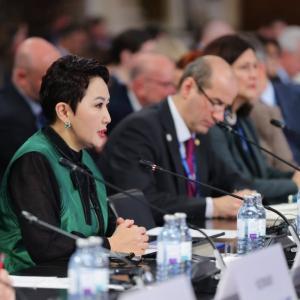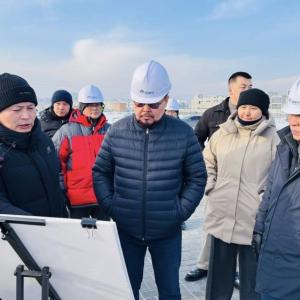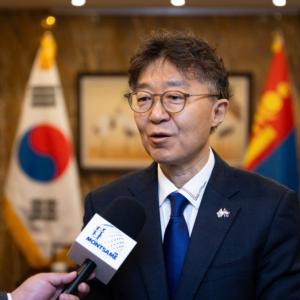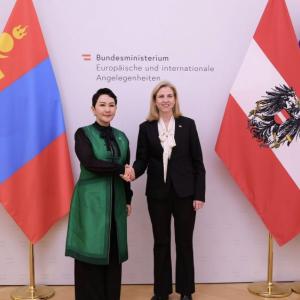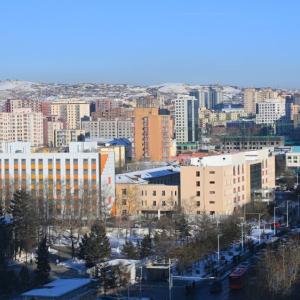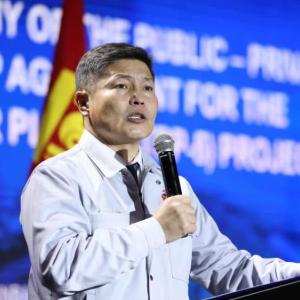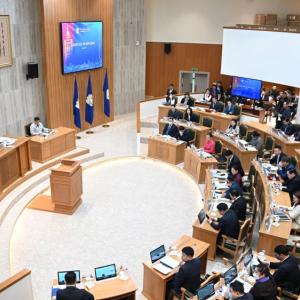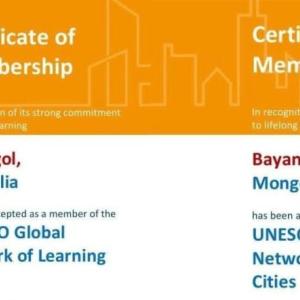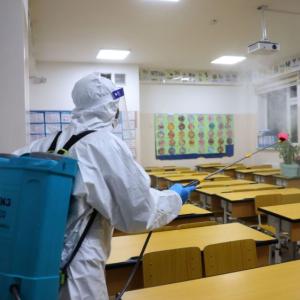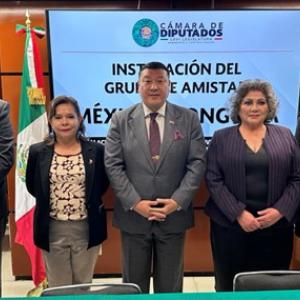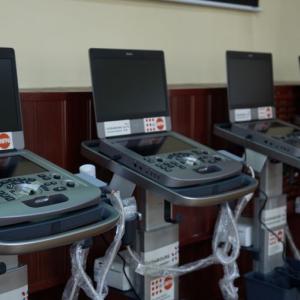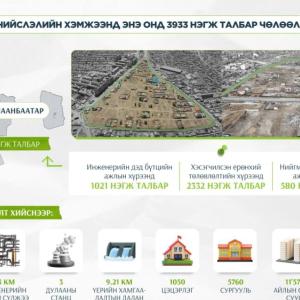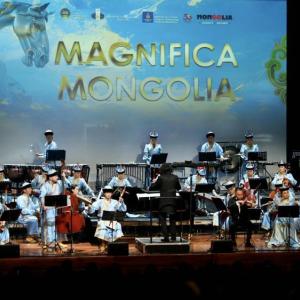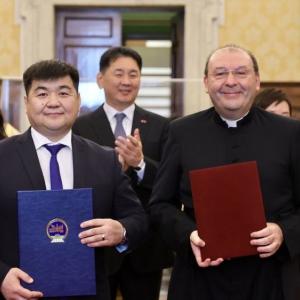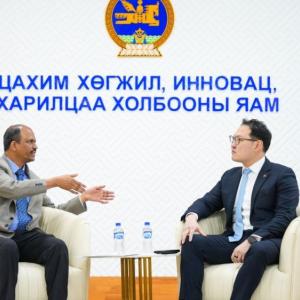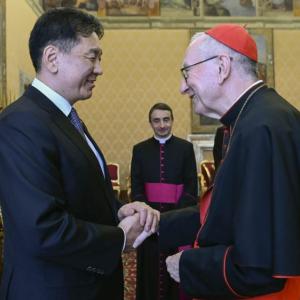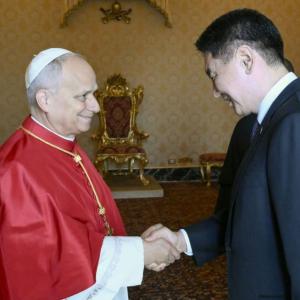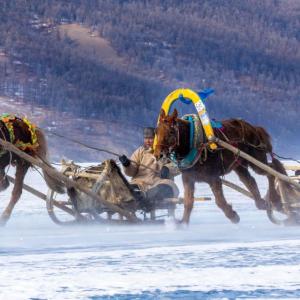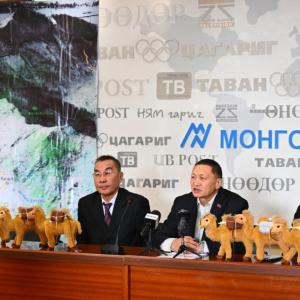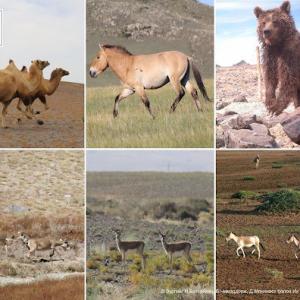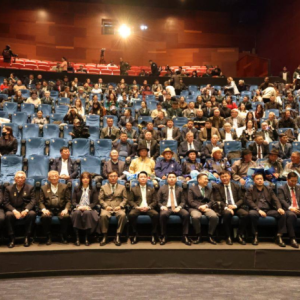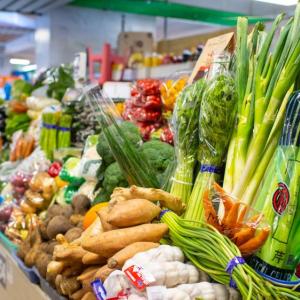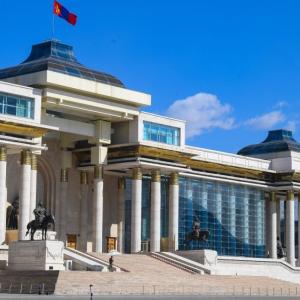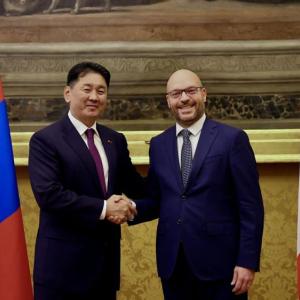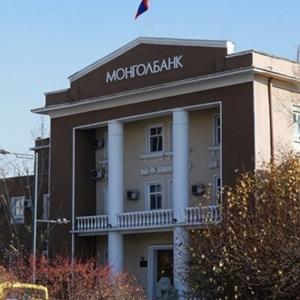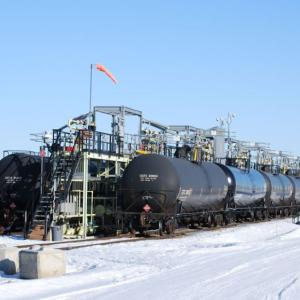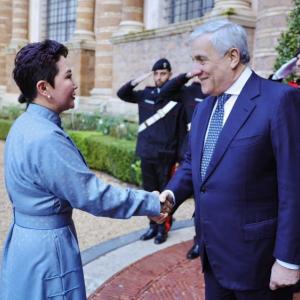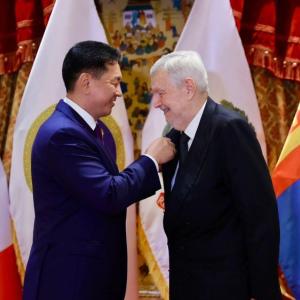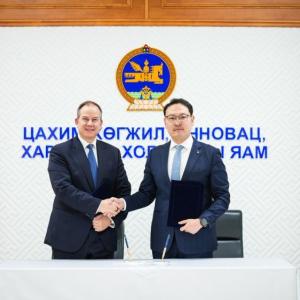Dairy Asia Secretariat Office launched in Ulaanbaatar
Society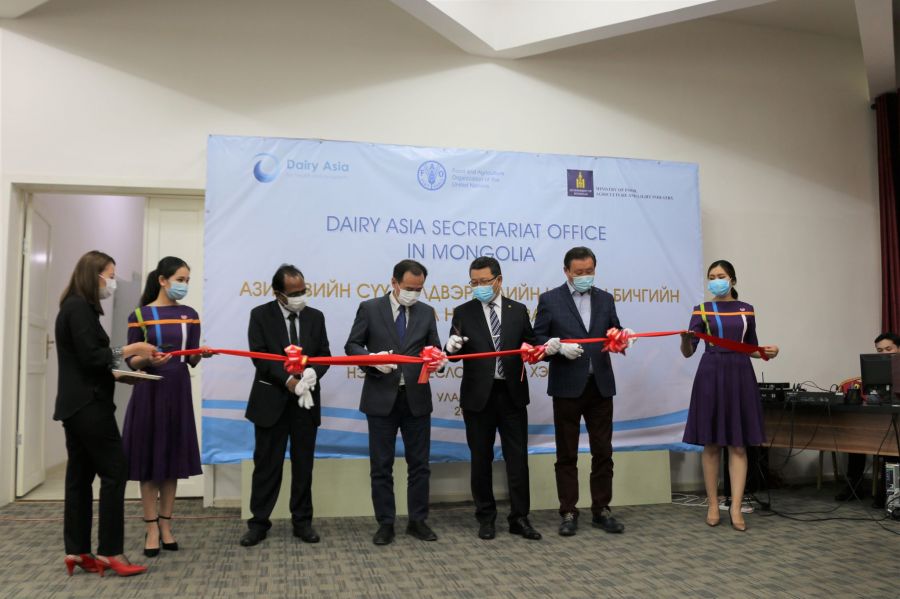
Ulaanbaatar /MONTSAME/. On June 10, Dairy Asia Secretariat Office officially launched in Ulaanbaatar with the support of Government of Mongolia (GoM) and Food and Agriculture Organization of the United Nations (FAO).
During its last meeting in 2018 in Ulaanbaatar, Mongolia, it became evident that Dairy Asia is prepared to enter the next stage, which will require more regional ownership and an independent secretariat along with increased financial resources and stronger private sector engagement.
To that end, Government of Mongolia has submitted the proposal to host the Secretariat Office, which was supported by the Dairy Asia steering committee, the Ministry of Food, Agriculture and Light Industry of Mongolia (MoFALI) as well as the FAO and Global Agenda for Sustainable Livestock (GASL). On 8 January 2020 the Mongolian cabinet has approved the order #11 that lays the ground for establishing a Secretariat office for “Dairy Asia” in Ulaanbaatar.
Dairy Asia is a multi-stakeholder partnership committed to building a socially and environmentally responsible Asian dairy sector that enhances rural livelihoods, improves nutrition, and contributes to economic prosperity in the region. It was founded by FAO in 2014 and currently has 13 member countries including Mongolia, Thailand, China, Sri Lanka, Bhutan, Bangladesh, Indonesia, Afghanistan, Philippines, India, Myanmar, Nepal and Vietnam.
Mr. Tsogtbaatar Damdin, the Minister of Foreign Affairs of Mongolia have highlighted that this occasion opens up a new opportunity for Mongolian dairy sector to export, as well as diversify the economic growth. Also, by opening the Secretariat Office of an international organization in Ulaanbaatar brings Mongolia’s diplomacy to another level.
Mongolia has an open, rather neutral and multilateral foreign policy within the Asia-Pacific region and beyond. This is crucial in building and maintaining partnership with Asian countries that differ greatly in nationality, language, region and culture. Mongolia has a long tradition of dairy production based on its nomadic culture and a diverse range of species and dairy products. Every guest welcomed with “Khadag” and a silver bowl with milk tea; blessed with milk for farewell and successful further journey. This tradition is at the heart of Mongolian culture and will facilitate any form of collaboration across Asian countries.
“While the sector faces challenges it is also rich in social and technical innovations. Sharing experiences and lessons around these innovations can be a powerful source of change in support of sustainability agenda. This requires joining hands.” said Vinod Ahuja, during the opening ceremony.
The establishment of Dairy Asia in Ulaanbaatar, Mongolia has the following important features:
The international cooperation of Mongolia in food and agriculture sector will be upgraded with increased the competitiveness of Mongolian dairy sector which will further create sustainbable development; in long term, it will make an image of Mongolia to expand opportunities for exportaion of dairy products within the region and the other part of world.
Representation of East, Central and Western Asia is relatively low in Dairy Asia. Given Mongolia’s geographic location and membership in relevant mechanisms, it is a unique position enables to facilitate contact with the respective countries. The same applies to the Northeast Asian region, i.e Japan, South Korea and North Korea, to which Mongolia maintains good relations that can help to engage partnership through Dairy Asia.
It will facilitate the support and development of intensive dairy cattle farms as well as support production of camel, goat, sheep, mare, and yak milk. Also it will support the development of semi-intensive system of animal husbandry and the value addition to milk production in sustainable way.
The GoM has officially prioritized the development and long-term support of activities aiming at strengthening the dairy development. Specifically the Mongolian Food Law defines dairy products as ‘Strategic Food’, which holds the State accountable for certain provisions that open avenues for collaboration with regional partnerships such as Dairy Asia. Thus, the enabling environment is present and poses a unique opportunity.
Background:
Milk production has been among the most celebrated success stories in Asia due to long historical traditions and technical innovations in recent times. This success story has been written by millions of small farmers, herders scattered across the region. The region is home for almost 60 percent of world population and milk production is steadily has been increased and reached almost 40 percent of the global milk production. The projected growth on consumption and demand of milk and dairy products in the region provide an excellent opportunity to boost the local dairy sector to strengthen food security, reduce poverty alleviation and contribute to overall social equity.
The members of Dairy Asia sought to develop a common framework for the Asian dairy sector while recognizing that no single strategy within this framework could fully address the various dimensions of sustainability and cater to the highly diverse Asian dairy sector. The members identified a number of strategic objectives to work towards, which are closely aligned to 14 of 17 sustainable Development Goals-an evidence of the dairy’s vast contribution towards achieving UN 2030 Agenda.
Till 2019, Dairy Asia was supported by the team at the FAO regional office in Thailand and FAO Mongolia office, playing the role of the secretariat for administrative support and technical guidance.
FAO Representative Office in Mongolia
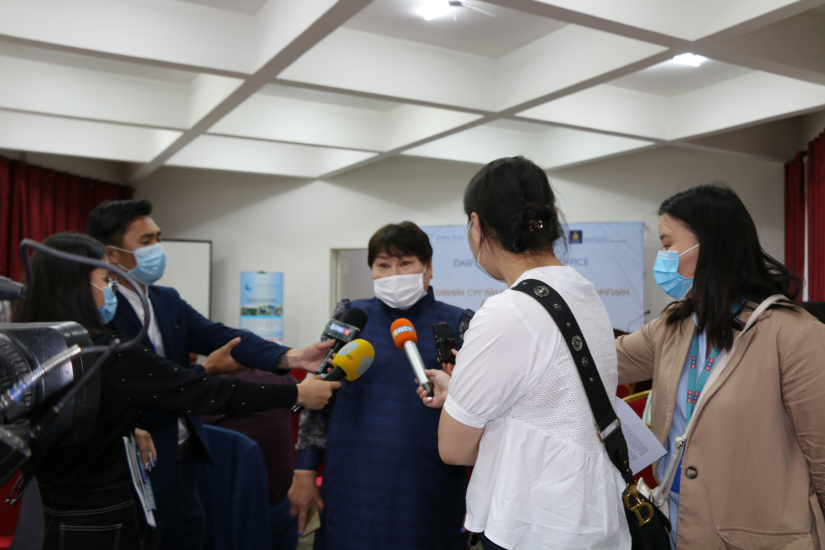

 Ulaanbaatar
Ulaanbaatar






